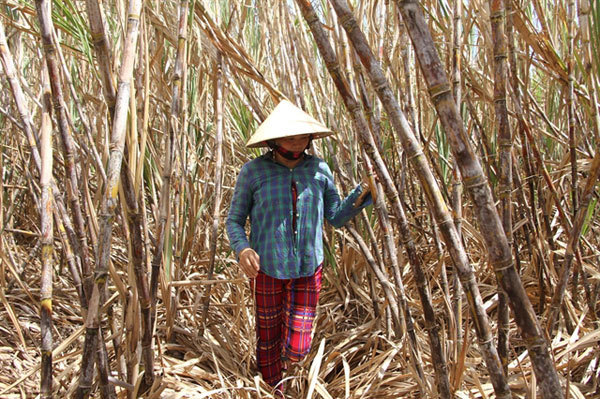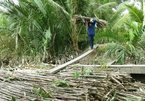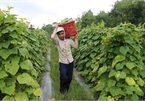 |
The district has around 3,900ha of sugarcane in the 2019 -20 sugarcane season.
The Soc Trang Sugar Joint Stock Company, the district’s main sugarcane producer, recently stopped buying.
Traders who buy sugarcane for making juice have also reduced their buying because of the impact the COVID – 19 pandemic.
Sugarcane farmers have earned very little or even suffered losses because of low prices and lack of demand.
In recent years they have suffered from low prices and demand volatility because of low sugar prices, according to the farmers.
Many whose fields are near roads have switched to growing sugarcane varieties used for making juice.
But Dang Thi Cam Giang, who has grown one such variety on two hectares in Đại Ân 1 Commune, said she has been able to sell only 0.5ha of sugarcane so far.
If she cannot sell the rest within half a month, she would have to cut down and throw away her sugarcane to start a new crop, she said.
The rainy season has begun in the district and farmers are starting to plant the 2020 – 21 crop.
The district plans to grow 3,500ha of sugarcane, but this target is difficult to achieve because of unsteady prices and inclement weather, according to the district Bureau of Agriculture and Rural Development.
The area under sugarcane area would continue to decline since more and more farmers would switch to other crops that offer better incomes, it said.
In 2010 it used to be 8,500ha.
Many farmers have since switched to other crops on unproductive fields, mostly longan, mango, green peel and pink flesh grapefruit, and vegetables or to aquaculture.
This increased the district’s agriculture production value from VND120 million (US$5,100) per hectare in 2015 to VND145 million ($6,200) now.
Local authorities plan to completely stop growing sugarcane and switch to other crops, especially fruits, since the islet district’s fertile soil is suitable for orchards. VNS

Local sugar firms concerned by reduced import tariffs under ATIGA
Domestic sugar companies are worried about losses in the local market as the ASEAN Trade in Goods Agreement (ATIGA) will lower the tax rates for sugar imports from ASEAN markets to only 0%-5% on January 1 next year.

Mekong Delta farmers switch to other crops in response to climate change
More farmers in the Mekong Delta have restructured their crop cultivation to adapt to the effects of climate change.
 Sugarcane farmers in Cu Lao Dung District, the largest sugarcane producer in Soc Trang Province, are likely to lose 150ha of sugarcane since they cannot find buyers for their crop, which is ready for harvest." itemprop="description" />
Sugarcane farmers in Cu Lao Dung District, the largest sugarcane producer in Soc Trang Province, are likely to lose 150ha of sugarcane since they cannot find buyers for their crop, which is ready for harvest." itemprop="description" />